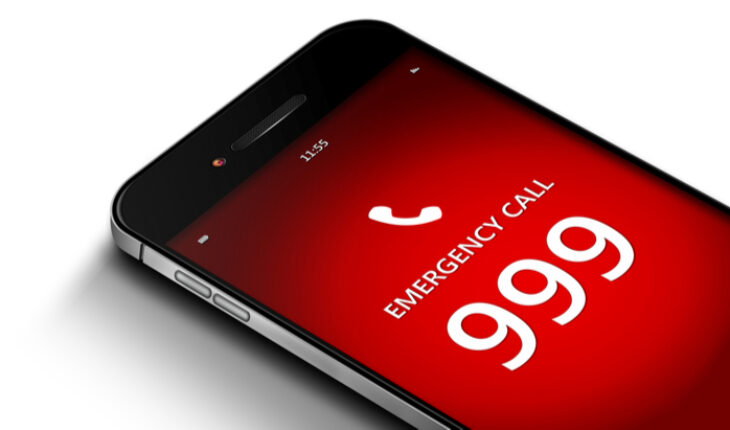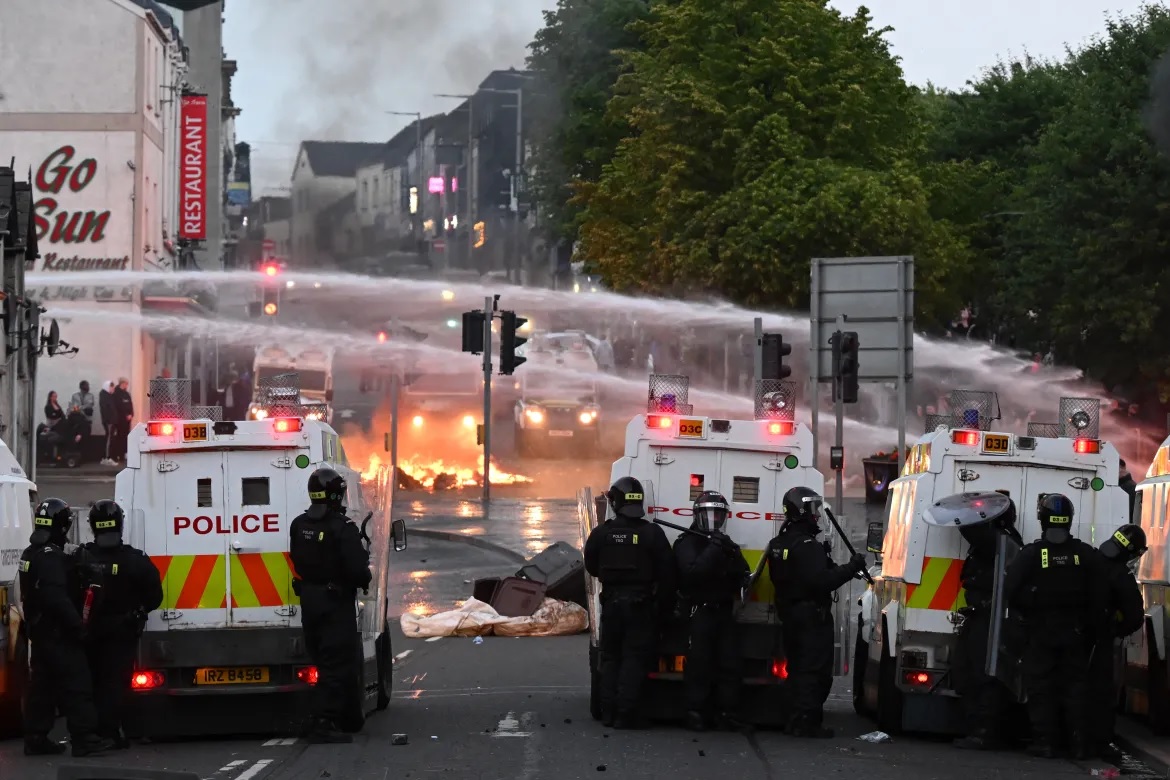如果您需要警察幫助但無法說話:靜音解決方案
如果您在緊急情況下需要警察幫助,但又不方便發聲。請讓您的聲音被聽到,讓999接線員知道您的電話是真的。
當您撥打 999 時
所有999電話都會轉到呼叫中心,由BT接線員接聽。他們會詢問您需要哪種服務。如果沒有請求服務,但在整個過程中聽到任何可疑的聲音,BT電信接線員會將您轉接給警方呼叫處理人員。
當您用手機撥打999時
如果可以的話,最好與接線員通話,哪怕是小聲說話。在回答問題時,可能要求您咳嗽或點擊手機上的按鍵。
如果發出聲音會使您或其他人處於危險之中,並且BT接線員無法確定是否需要緊急服務,您的呼叫將被轉接到靜音解決方案系統。
靜音解決方案是警方用來過濾大量意外或999惡作劇電話的系統。它的存在也是為了幫助那些不能說話但確實需要警察幫助的人。
您將聽到一段持續20秒的警方自動語音提示,開頭為「您已接通警方」。它會要求您按55轉接至警方呼叫管理中心。BT電信接線員將保持通話並監聽。如果您按55,他們將收到通知並將電話轉給警方。如果不按55,通話將被終止。按55鍵不會讓警方追蹤到您的位置。
接下來呢?
當轉接到當地警察局時,接警員會嘗試用簡單的是或否問題與您溝通。如果您不能說話,請仔細聆聽呼叫處理人員的問題和指示,以便他們對您的呼叫進行評估,並在必要時安排幫助。
當您用固定電話撥打999時
由於從固定電話意外撥打999電話的可能性較小,因此不使用靜音解決方案系統。如果接到固定電話的緊急呼叫:
- 沒有緊急請求
- 來電者不回答問題
- 只能聽到背景噪音,BT接線員無法判斷是否需要緊急服務,
- 那麽您將被轉接至警方電話處理人員,因為情況存疑。
如果您更換聽筒,座機可能會保持連接45秒,以防您再次拿起聽筒。
如果您在這45秒內再次接聽電話,而BT接線員擔心您的安全,則會將電話轉接給警方。
從固定電話撥打999時,呼叫處理人員應自動獲得您從哪裏撥打電話的信息,以幫助提供響應。
A Year of Record Hate Crimes
Hate crime in Northern Ireland has reached its highest level since records began in 2004, shaking confidence in our communities and raising urgent questions about how society responds.
Between April 2024 and March 2025, a new PSNI recorded 2,049 racist incidents and 1,329 race hate crimes. Amnesty International described the past year as “a year of hate and fear.” For many people from migrant and minority backgrounds, that description feels painfully accurate.
These aren’t abstract numbers. Each one represents a person who has been shouted at, threatened, or made to feel unwelcome in their own community.
What Hate Crime Means
According to the PSNI,
“A hate crime is any criminal offence which is perceived by the victim or any other person to be motivated by hostility or prejudice towards someone based on a personal characteristic.”
Hate crime happens when someone is targeted because of who they are, or who someone believes them to be. It might be about race or faith, disability or sexual orientation, or any other part of a person’s identity that should never make them a target.
Chief Superintendent Sue Steen, who leads on hate crime for the PSNI, said recently that while officers are committed to tackling hate, the law hasn’t kept up.
This has been a crisis developing for years, fuelled by complacency and inaction.
A Community Under Strain
For many people, the emotional toll is what hurts most. Some victims have moved house several times to escape intimidation. Others have stopped going out after dark or sending their children to certain schools. A few have chosen to keep quiet because they fear nothing will change.
During a community meeting in Belfast this summer, residents spoke openly about their exhaustion. One participant summed it up simply:
“People aren’t just afraid of the attacks, they’re afraid that no one will care when they happen.”
What the Research Tells Us
Recent academic work by David Lowe supports what communities have long been saying. His study, Hate Crime in Northern Ireland: The Need for Legislation and a Bespoke Version of the Prevent Strategy, found that Northern Ireland still lacks a dedicated hate crime law. Instead, ordinary offences are labelled with a hate motivation after the fact.
Lowe argues this weakens deterrence and discourages victims from reporting. He also points to the delay in acting on Judge Marrinan’s 2020 recommendations for a new Hate Crime Bill. Political deadlock, he writes, has left Northern Ireland behind the rest of the UK.
The research also highlights something people in our community know instinctively — that small, everyday acts of hostility can be just as damaging as major incidents because they erode the sense of safety that holds a community together.
Getting Help
Support does exist. The Hate Crime Advocacy Service (HCAS) offers confidential, independent help to anyone affected by hate crime in Northern Ireland. Advocates can guide victims through reporting, support them during police investigations, and connect them to housing or counselling services.
You can reach HCAS at www.hcasni.com or by calling 028 9024 4039.
In an emergency, call 999. For other incidents, contact 101 or report online through the PSNI Hate Crime Portal.
You can also call Crimestoppers anonymously on 0800 555 111.
A Call for Action
Hate crime is not inevitable. It thrives only when people look away, when those with power delay change, and when victims are left to carry the burden alone.
The rise in hate incidents is not just a statistic, it’s a test of what kind of society we want to be. Every racist attack, every slur, every act of intimidation chips away at the fragile sense of belonging that so many have worked hard to build.
Now is the time for leadership and courage.
We need stronger hate crime laws, better education, and a clear message that prejudice will never be tolerated in Northern Ireland. But change will not come from government alone — it starts with all of us.
If you see hate, report it. If you hear misinformation, challenge it. If someone in your community is being targeted, stand beside them.
At the Chinese Welfare Association, we’ll continue to offer a safe and welcoming space for everyone. We’ll stand with those who’ve been targeted, and we’ll keep working with partners across Belfast to build a city that stands against hate and stands up for one another.
If you’ve been affected by hate crime or want to help make a difference, please get in touch.
Hate divides, but silence enables it.
Together, we can make Northern Ireland a place where everyone feels they belong.


